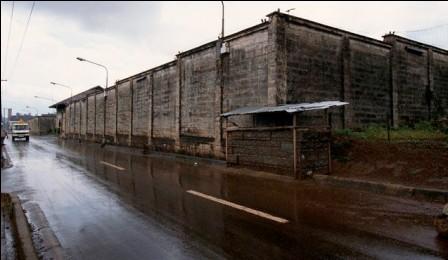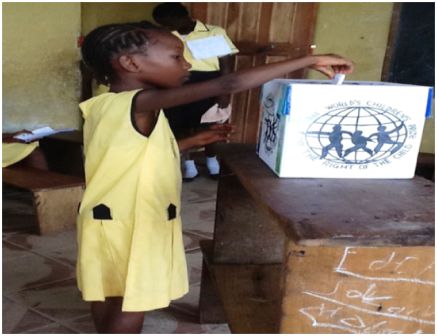Juvenile Justice and its impeding factors In Sierra Leone
Juvenile delinquency is an issue always directly linked to juvenile justice. Juvenile justice is the legal process which deals with children who are in direct contradiction or in conflict with the laws of every given state. The treatment of juvenile justice matter varies from state to state. In order words, every state has its own punishment or reformation treatment, accorded to a juvenile offender. Before delving into juvenile justice matters properly, a clear cut definition must be given as to what juvenile delinquency means and its repercussions in relation to juvenile justice system in Sierra Leone.
The Webster’s New World Dictionary defines juvenile delinquency as an antisocial act or illegal behaviour by minors, usually under the age of 18 years or younger- been referred to as juvenile delinquent.
In Sierra Leone today, the issue of juvenile justice and its militating impact on our society is being treated with levity. In fact, the justice system and the Ministry of Social Welfare, Gender and Children’s Affairs seem to pay less attention on how the juvenile justice system is faring on in ensuring that children who go contrary to the law are given proper reformation treatment with particular reference to the United Nation’s Children’s rights on juvenile justice. The misplaced priorities of children’s rights in this country are conspicuous evidence to prove that stakeholders, especially in the ministry of social welfare are not implementing according to what the United Nation’s Treaty on children’s rights say.
The neglected state of children in this country is a great cause for alarm in our juvenile justice system. Disappointingly, in the presence of government and other children’s rights advocacy agencies in the country, the deplorable conditions of children in this country are yet to be appropriately tackled. Children still are victims of child labour, illegal detention together with adult criminals, abandonment in the streets and worst of them all, many are still roaming the streets with no care and access to education.
The impeding factors to juvenile justice system in Sierra Leone are numerous, but two prominent factors could be highlighted which need effective change in the juvenile justice system in this country. First and foremost, the manner of detention of juvenile offenders is improper and it is a situation that exacerbates the already incongruous problems of juvenile offenders in lieu of reforming them. Looking at the juvenile correction system in this country, many child rights advocates would agree that children as young as 14 to 16 are being kept in the same cell room with adult offenders which obviously contravenes the Geneva convention on the rights of children.
Children are given the same treatment as adults. While in custody, it is believed that most of these juvenile offenders, instead of correcting their bad behaviour ended up doing the worst whenever they are released from police cell or prisons. Juvenile offenders as children in conflict with the law should be given preferential treatment with regards their detention and reformation exercises as demanded by the United Nation’s Convention on the Rights of the Child. The resultant danger of having minors in detention with adults is that there is every tendency for the children to photocopy the bad habits of hard core criminal inmates.
Secondly, the correction centers for juvenile offenders in the whole of Sierra Leone are not in proper shape. On a brief journalistic tour undertaken by this writer to reformation centers, he found the juvenile detention centers to be in a deplorable condition, especially those found around Freetown.
One of such centers visited was the Approved School situated at Kissy in the eastern axis of Freetown which is in a dilapidated condition and almost lies in ruin due to lack of care. There used to be one at Kingtom in the western part of the city, but little or nothing is happening there as of now in terms of correcting the menacing activities of juvenile offenders.
Thirdly, for every juvenile offender taken into custody, there used to be a probation officer assigned to an offender in order to monitor whether his/her behaviour is in congruous to what is expected of a child. Sadly, most of these probation officers attached to surveillance the movement of these juvenile offenders pay little or no attention to children under their custody. Thus, the increase in crime rate in the city and other parts of the country has come as no surprise but as a result of no fitting remand homes to tackle the insolent behaviour and attitude of juvenile offenders.Â
Nonetheless, the deterrents of juvenile justice system in Sierra Leone are directly enmeshed with the problems identified in above analysis. Therefore, it is never too late for the government and other child welfare stakeholders to work hand in glove in order to remedy the menacing juvenile justice scheme in this country.
Stay with Sierra Express Media, for your trusted place in news!
© 2010, https:. All rights reserved.







isaac gaie
/
Please help mew with statistic for Sierra Leone child delinquent
1st December 2010